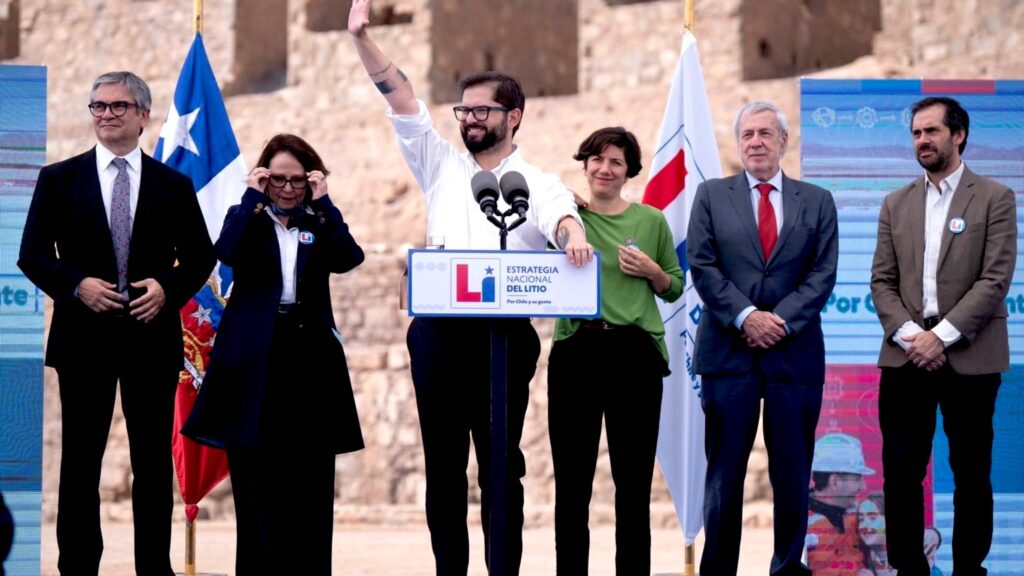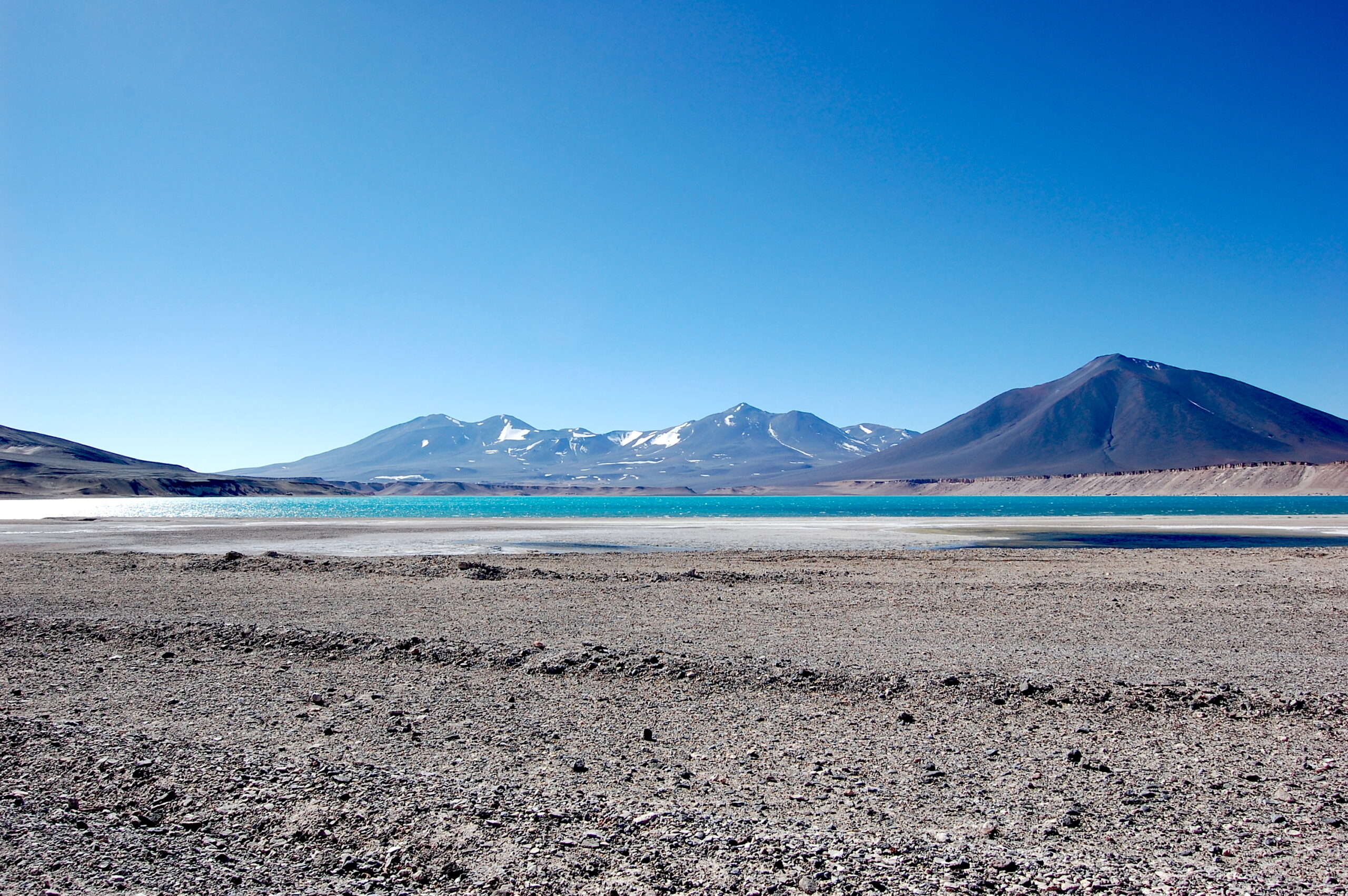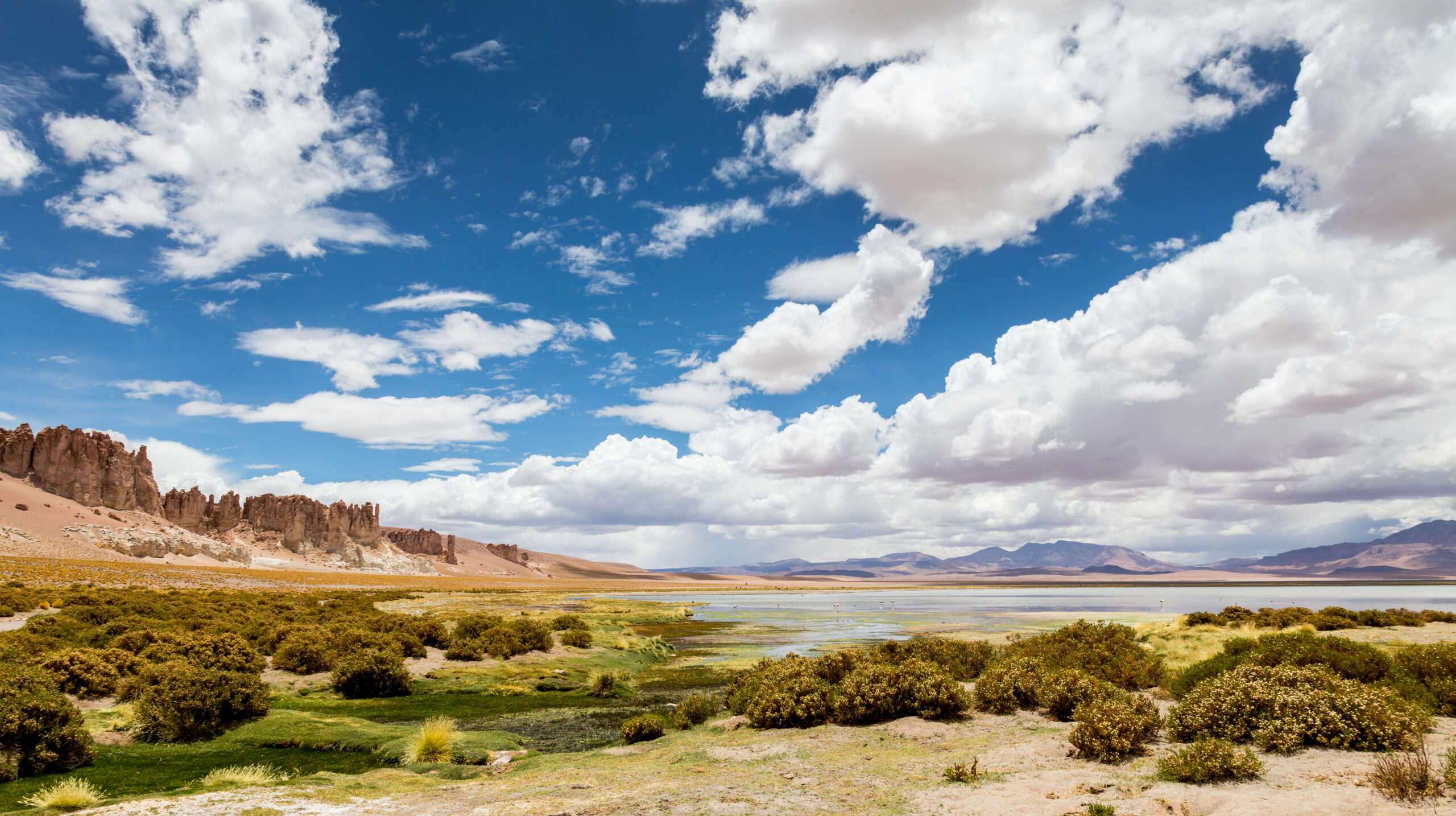Chilean President Plans to Nationalize Lithium Industry
ENVIRONMENT, 8 May 2023
Gabriel Boric | Consortium News - TRANSCEND Media Service
The initiative, which will be sent to Congress later this year, is designed to boost the economy of the nation, which has some of the world’s largest reserves of the high-demand metal.

Chilean President Gabriel Boric announcing his plan to nationalize the country’s lithium industry on April 20, 2023. (Gabriel Boric/Twitter)
28 Apr 2023 – Chile’s President Gabriel Boric, in a televised address to the nation last month, announced his plan to nationalize the country’s lithium industry to boost the economy and protect the environment:
“Chile has one of the largest lithium reserves in the world. It is a mineral that, being in electric bus and car batteries, is key in the fight against the climate crisis, against climate change. It is an opportunity for economic growth that will be difficult to beat in the short term. Together with the development of green hydrogen, it is the best chance we have at transitioning to a sustainable and developed economy. We can’t afford to waste it.”
Boric said that his national lithium policy includes the creation of a state-owned company, which would eventually take control of the country’s lithium mining sector from private industry giants.
In this regard, he added that future lithium contracts would only be issued as public-private partnerships, with full state control. The government would not terminate current contracts, he said, and expressed the hope that companies would be open to state participation before the contracts expire.
The head of state added that the plan includes encouraging the use of new technologies to minimize the impacts of mining on ecosystems and promote research through a salt-flat protection network. For this purpose, he announced that a National Institute of Lithium and Salt Lakes would be created.

Laguna Verde in Chile’s mineral-rich Atacama region. (Lucash, CC BY-SA 3.0, Wikimedia Commons)
Boric said that future lithium exploration would be undertaken with the participation of all Indigenous communities residing near the extraction zones and reliant on local water basins for their livelihoods.
He said his plan not only promotes extraction and conservation, but also encourages generation of lithium products in the country. The plan will be presented to the Congress in the second half of the year.
“We will send a bill to create the National Lithium Company to Congress. It will look for partners to develop value-adding projects. This implies making an additional effort to not only extract raw materials, but to convert them into new products with high technological value. We can do it in Chile,” he said.
“Our challenge is for our country to become the world’s leading lithium producer, thus increasing its wealth and development, distributing it fairly while protecting the biodiversity of the salt flats,” he said.

The Tara Cathedrals (left) and the Tara salt flat in the Atacama Desert, northern Chile. (Diego Delso, CC BY-SA 4.0, Wikimedia Commons)
Chile has one of the world’s largest lithium reserves and is the world’s second largest producer of the metal after Australia.
Albemarle and SQM, the world’s No. 1 and No. 2 lithium producers, respectively, are the two companies that currently hold licenses for lithium exploration, mining, and exploitation in the Atacama salt flat in the north of Chile. SQM’s contract is set to expire in 2030, and Albemarle’s in 2043.
Lithium is highly sought worldwide for the manufacture of batteries. Its demand is predicted to increase as much as 40-fold by 2040 due to the global energy transition.
Latin America will play a key role in this shift. According to the United Nations Development Programme (UNDP), the region is home to an estimated 60 percent of the identified lithium reserves globally, with Bolivia, Argentina, Chile, Mexico, Peru, and Brazil accounting for some of the largest reserves.
[The political ramifications for Chile’s move remain to be seen. Following the 2019 coup that overthrew Bolivia’s democratically-elected president Eve Morales, Elon Musk, whose business depends on lithium, tweeted: “We will coup whoever we want to. Deal with it!”]
Peru is the second-biggest copper producer (after its neighbor Chile)
This means Peru will be increasingly important in the global shift toward renewable energy technologies
Goldman Sachs said "copper is the new oil" and "sits at the heart of" renewableshttps://t.co/AsNQOdDZER pic.twitter.com/eOutjifcfw
— Ben Norton (@BenjaminNorton) January 19, 2023
Don't forget: After the US-backed coup against democratically elected socialist President Evo Morales in Peru's lithium-rich neighbor Bolivia in 2019, billionaire oligarch Elon Musk boasted:
"We will coup whoever we want! Deal with it"https://t.co/AsNQOdDZER pic.twitter.com/sTVXiZulZ8
— Ben Norton (@BenjaminNorton) January 19, 2023
Go to Original – consortiumnews.com
Tags: Capitalism, Chile, Conflict, Ecology, Environment, Extractivism, Indigenous Culture, Indigenous Rights, International Trade, Latin America Caribbean, Lithium, Resources, Social conflict
DISCLAIMER: The statements, views and opinions expressed in pieces republished here are solely those of the authors and do not necessarily represent those of TMS. In accordance with title 17 U.S.C. section 107, this material is distributed without profit to those who have expressed a prior interest in receiving the included information for research and educational purposes. TMS has no affiliation whatsoever with the originator of this article nor is TMS endorsed or sponsored by the originator. “GO TO ORIGINAL” links are provided as a convenience to our readers and allow for verification of authenticity. However, as originating pages are often updated by their originating host sites, the versions posted may not match the versions our readers view when clicking the “GO TO ORIGINAL” links. This site contains copyrighted material the use of which has not always been specifically authorized by the copyright owner. We are making such material available in our efforts to advance understanding of environmental, political, human rights, economic, democracy, scientific, and social justice issues, etc. We believe this constitutes a ‘fair use’ of any such copyrighted material as provided for in section 107 of the US Copyright Law. In accordance with Title 17 U.S.C. Section 107, the material on this site is distributed without profit to those who have expressed a prior interest in receiving the included information for research and educational purposes. For more information go to: http://www.law.cornell.edu/uscode/17/107.shtml. If you wish to use copyrighted material from this site for purposes of your own that go beyond ‘fair use’, you must obtain permission from the copyright owner.